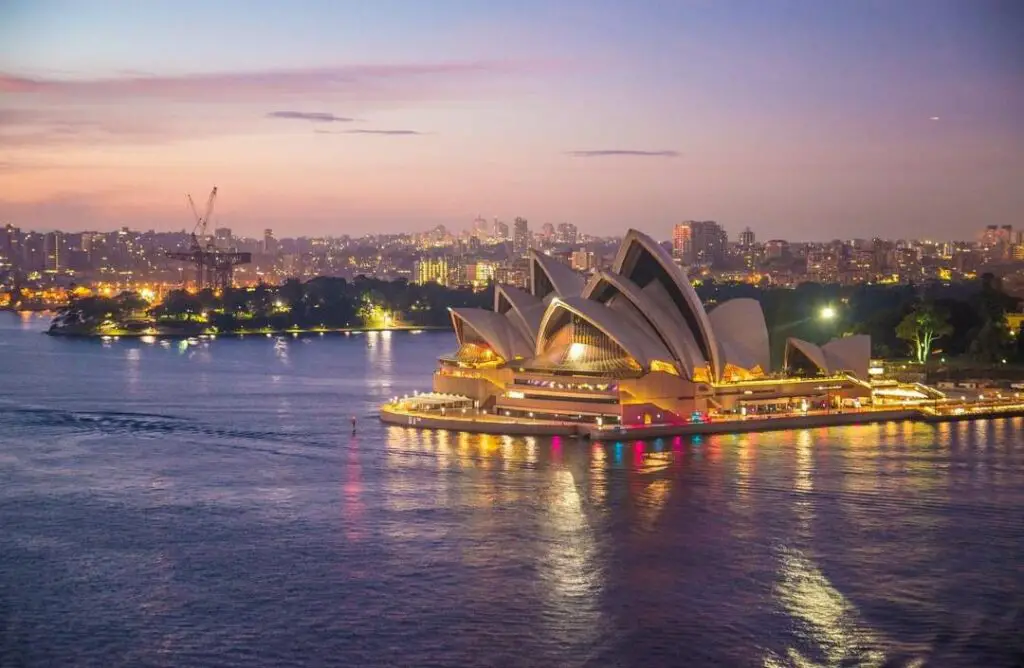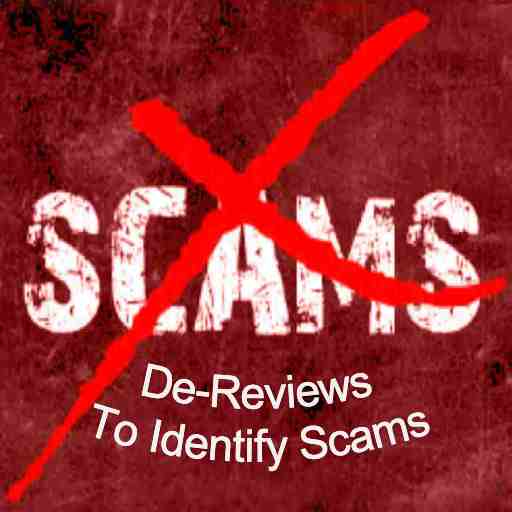Keep an eye out for most common travel scams in Sydney. Here, we aim to keep you protected by exposing Travel Scams In Sydney. Also, find out about the Sydney Australia Tourist Attractions as well as Tips For Traveling Sydney.

- Travel Scams In Sydney:
- Check this video for more Info on Travel Scams In Sydney:
- Sydney Australia Tourist Attractions
- Tips For Traveling Sydney:
- FAQs On Travel Scams In Sydney And Sydney Australia Tourist Attractions as well as Tips For Traveling Sydney
- Conclusion About Travel Scams In Sydney And Sydney Australia Tourist Attractions as well as Tips For Traveling Sydney
Travel Scams In Sydney:
Here are the list of Travel Scams In Sydney:
Taxi Scam:
Be careful with some taxis. They might pretend to be luxury cars, mess with the meter to charge you extra, or they may say the meter is broken to make you pay more, even hundreds of dollars. They might take longer routes and say they're shortcuts. Also, watch out if they don't give you enough change, saying they don't have smaller bills.
So, ask the driver to turn on the meter and plan your route before getting in. Carry small bills and coins to avoid scams. Use licensed taxis or trusted ride-sharing apps, and always ask for a receipt.
Be careful of some taxis near airports or train stations. Stay away from unofficial taxi lines and only use the official ones. Make sure the meter is working to avoid paying too much.
Visa Scams:
Be cautious of visa scams, especially those promising 'guaranteed' Australian visas. Scammers may impersonate government officials or create deceptive websites. To safeguard against fraud, verify migration agents on the OMARA website and rely solely on the Department of Home Affairs for visa processes. Also, read travel advice and apply for your visa through the embassy-approved links to stay safe.
Travel Insurance Scam:
Be careful with travel insurance offers. Some might seem cheap but won't cover everything you need. Make sure you get enough coverage for your trip before buying.
So, to stay safe from travel insurance scams, look into insurance companies, see if they're legit, and understand what the policy covers. Don't fall for random offers, compare options from trusted companies, and ask about what's included and what's not.
Buy insurance straight from reliable sites or official sources. Save paperwork and ask trusted folks or consumer agencies if you're unsure about an offer.
Personal Information Scams:
Refrain from sharing personal details on unfamiliar websites due to prevalent online hacking risks. Additionally, exercise caution when using credit cards online or at suspicious locations; verify the legitimacy before making transactions to safeguard your financial information.
Never share original documents, opt for certified copies, and refrain from disclosing personal information via email or phone to prevent identity theft. In case of suspicion, promptly contact your bank to ensure security.
Fake Guides Scam:
When you visit historical places, be careful of guides who aren't official. They might take you to shops where they get paid if you buy something. They could trick you into buying things you don't want. Some might even offer tours without required permission. They could also ask for a lot of money, saying they can show you special places or that some spots are closed.
To stay safe, only go with guides from trusted places. If someone comes up to you on the street, just say no thanks and find a real guide.
Fake Wi-Fi Networks:
Avoid connecting to unsecured public Wi-Fi networks or free Wi-Fi that doesn't need a password. Scammers can use it to harm your computer or phone or might use these to steal your personal info.
Before connecting to a Wi-Fi network at a café, store, or public place, verify the login details with an employee. You can also find this information in official literature, like a menu.
Fake USB Charging Ports:
Be careful with public USB ports, especially in places like shopping malls. Scammers might use them to hack your device and steal your info. So, it's safer to bring your own charger and avoid using public USB ports.
Fake Wireless Charger:
Scammer may put fake wireless charger for various devices on public places. When you put your device to charge there, they may steal your device very quickly. So, it's better not to use public wireless charger or at least stay focus when you charging your device there.
Street Shopping Scams:
Watch out for street vendors selling fake or misrepresented items at seemingly low prices. Stick to trusted stores, check market prices beforehand, and be careful of sellers who may manipulate weights or hide prices to overcharge you. Likewise, always insist on clear pricing and confirm details before buying anything.
ATM Scams:
Strangers may offer help at ATMs, intending to skim your card and steal your PIN. Be cautious while using ATMs. Scammers may place skimming devices to steal your card information.
Decline assistance and use your hand to shield the number pad while entering your PIN. Also, opt for ATMs in well-lit, secure locations and avoid quiet area's ATMs.
Bar Friends Scam:
Enjoying the nightlife is great, but be cautious of scams at bars. Some people may invite you for a drink, then surprise you with a high bill. If you refuse to pay, you might find yourself escorted to an ATM by bar staff. So, pick a bar you know, check the prices, and avoid situations that seem too good to be true. Also, choose a bar you like or check the prices before ordering.
The Flirtatious Distraction Scam:
Watch out for scammers who act flirty to distract tourists, especially if you're traveling alone. They might talk to you very nicely to take your attention away and attempt to pickpocket you. So, be alert and make sure to set personal boundaries when talking with unknown people.
Romance Scam:
A Romance Scam is when someone you meet online pretends to like you a lot and talks to you for a long time. Then, they might make up stories about needing money urgently, like for a sick family member or to travel to meet you.
If they ask you to send money to a different name or overseas, that's a warning sign. If you feel something is not right, stop talking to them and tell someone you trust. You can also report it to the ACCC to help others stay safe from these kinds of scams.
Check this video for more Info on Travel Scams In Sydney:
You can find more details on previous mentioned tourist scams on this video.
If you prefer not to watch the video, you can read the article instead: de-reviews.com/common-travel-scams-avoid-tips-and-guidance/
It provides detailed explanations of previously mentioned tourism scams, including information on common travel scams in many countries.
Sydney Australia Tourist Attractions
Now you know about the Travel Scams In Sydney. But, that doesn’t mean you should avoid to visit Sydney. Keeping in mind about the possible tourism scams as mentioned earlier, you can enjoy your travel exploring these Sydney Australia Tourist Attractions:
- SYDNEY OPERA HOUSE.
- THE ROCKS DISCOVERY MUSEUM.
- SYDNEY HARBOUR BRIDGE.
- DARLING HARBOUR.
- ST MARY'S CATHEDRAL.
- QUEEN VICTORIA BUILDING.
- SYDNEY TOWER.
- SEA LIFE SYDNEY AQUARIUM.
- SYDNEY WILDLIFE WORLD.
- TARONGA ZOO.
- CADMANS COTTAGE.
- CHINESE GARDEN OF FRIENDSHIP.
- THE BLUE MOUNTAIN NATIONAL PARK.
- WATSONS BAY.
- KINGS CROSS.
- BONDI BEACH.
- MANLY BEACH.
- SYDNEY OLYMPIC PARK and so on.
Tips For Traveling Sydney:
Here are few more Tips For Traveling Sydney to avoid possible travel scams in Sydney.
1. Get a Local SIM Card:
Start your trip by getting a local SIM card. It'll help you use your phone for maps, checking info, and calling for help if you need it. Make sure to download useful apps like maps, ride-sharing, and translation tools before you go.
2. Plan Ahead:
Before you go on your trip, find out about places to visit, how to get around, local rules, and things to watch out for. Make a plan with maps, directions, and contacts for where you're staying and who to call if you need help. Having a good plan helps you avoid scams.
3. Verify Info:
Don't trust info from people you don't know, especially if they approach you first. Instead, use guides, official sources, or ask your embassy for accurate details about places, events, and local stuff.
4. Learn the Local Rules:
Know the rules of the place you're visiting so you understand what you can and can't do. This helps you avoid getting tricked by scammers who might try to use your lack of knowledge against you.
5. Learn Basic Local Language:
Knowing a few easy local words can keep you safe from common travel scams. For example: Saying "hello" and "thank you" in local language can help you connect with locals and signal that you're not an easy target for scams.
6. Stay Confident:
Scammers look for tourists who seem unsure. Act confident, even if you're not sure where you are. Also, say "no thanks" firmly to offers or invitations from strangers you don't trust.
7. Use Trusted Transportation Apps:
When you need a ride, go for popular ride-sharing apps. Because, they show you how much your trip will cost and tell you about your driver.
8. Keep Valuables Secure:
Get a special bag or pouch that's hard for thieves to steal from. Also, keep important things like your passport and travel insurance in a safe place.
9. Blend In with the Locals:
Wear simple clothes, following the local customs and avoid showing off valuables. This helps you blend in with locals and not attract unwanted attention. But still, be careful who you trust, as not everyone is friendly.
10. Be Sure Before Drinking or Smoking:
Before drinking or smoking in public places, make sure it's allowed. Because, some places may have strict rules, and breaking them could get you in trouble. Also, avoid buying from street sellers, as their products might be low quality and cause problems. If unsure, ask locals or other travelers for advice.
11. Secure Your Place to Stay:
When booking a hotel, use trusted websites or the hotel's official site. Check your booking info carefully and keep a copy of your reservation. This helps avoid any issues when you get there.
12. Avoid Promotional Illusions:
Be careful on social media. Some offers for free stuff might ask you to share or comment to enter. But watch out! Some of these are tricks to get more likes and followers. Always double-check these offers and make sure they're genuine before you join in.
13. Maintain a Low Profile:
While traveling, avoid drawing attention to yourself. Use simple bags and only carry what you really need. Keeping a low profile can help you avoid getting noticed by scammers.
14. Use Trusted Services:
When booking tours, transportation, or services, opt for well-established and reviewed providers. Read online reviews, consult guidebooks, and ask fellow travelers for recommendations.
15. Use Trusted Currency Exchange:
Only exchange your money at banks or official currency exchange places. Avoid using ATMs that aren't from major banks. Because, they might charge you high fees, or they be the fake or skimming ones.
16. Be Wary of Tempting Offers:
Don't easily trust things like super cheap prices, attractive women, friendly strangers, or too-good-to-be-true deals. Take a moment to think before saying yes, as these could be scams to trick you. Always double-check if something seems fishy before agreeing to it.
17. Check the Source:
When you see a cool deal online, make sure it's from a genuine place. So, look for contact info and see if they seem real. Genuine places give clear details. If it seems too amazing, then search for more info to make sure it's not a trick.
18. Share Your Itinerary:
Make sure a close friend or family member knows your travel plans. That way, someone knows where you are in case you need help.
19. Negotiate Wisely:
Negotiate prices respectfully while shopping at local markets and shops. If you feel pressured, don't hesitate to walk away.
20. Stay Updated:
To avoid troubles, it's good to learn about local scams and hear from other travelers. Ask for tips and suggestions from people who have been there before.
21. Trust Your Instincts:
If something feels suspicious, then trust your instincts and consider other options.
22. Report Suspected Scams:
If you think something fishy is going on or you're not sure, then tell the local police or your embassy. This helps keep others safe and stops the scammers.
FAQs On Travel Scams In Sydney And Sydney Australia Tourist Attractions as well as Tips For Traveling Sydney
How can I distinguish between official and unofficial tour guides to avoid Travel Scams In Sydney?
Choose guides recommended by tourist offices or well-known companies. Likewise, avoid taking tours from random people you meet on the street. Also, it's safer to book your tours ahead of time through trusted sources.
How can I identify genuine tour guides at Sydney Australia Tourist Attractions?
Genuine tour guides often work for well-known companies. So, don't accept offers from strangers near tourist spots. Instead, book tours in advance with trusted sources and check if your guide is qualified.
Are street sellers near Sydney Australia Tourist Attractions reliable for purchasing souvenirs?
Watch out for street sellers who might sell fake or expensive souvenirs. Also, go to known stores for souvenirs, check prices in advance, and be careful with offers that seem too good to be real to stay safe from scams.
What precautions should I take when using public transportation to visit Sydney Australia Tourist Attractions?
Be careful in busy transportation areas, use anti-theft items, and keep your valuables safe. Also, watch out for distractions and be cautious if someone you didn't ask for help offers assistance, especially in crowded tourist places.
How can I protect myself from Travel Scams In Sydney while exploring Sydney Australia Tourist Attractions?
Follow the Tips For Traveling Sydney i.e. before visiting popular attractions, research them in advance. Purchase tickets through official services and be wary of unauthorized sellers offering discounts. Meanwhile, rely on reputable information centers or trusted online platforms for accurate information.
What are some Tips For Traveling Sydney to avoid Travel Scams In Sydney while exploring Sydney Australia Tourist Attractions?
Stay informed about common scams, be cautious of unsolicited offers, and rely on official channels for information and bookings. Likewise, use secure accessories for valuables, trust accredited guides, and report any suspicious activities to local authorities.
Conclusion About Travel Scams In Sydney And Sydney Australia Tourist Attractions as well as Tips For Traveling Sydney
Now you know about the Travel Scams In Sydney and the Sydney Australia Tourist Attractions as well as Tips For Traveling Sydney. So, if you want to say anything related to this post, then please feel free to place your comments below.
Share Your Experiences On Travel Scams In Sydney
If you've come across more "Travel Scams In Sydney" or have fascinating travel stories to share "Tips For Traveling Sydney", we'd love to hear from you. Feel free to leave a comment below, as your input can help others learn from your valuable experiences and insights.
Spread Awareness On Travel Scams In Sydney:
Please feel free to share this information with your friends and families through your social media accounts to let them know about the possible scams they can encounter while traveling in Sydney.
Join the Conversation
If you possess any valuable information about tourism scams, regardless of their location in the world, please don't hesitate to get in touch with us via email at ad***@********ws.com. Your input can truly make a significant difference in ensuring the safety of travelers globally.
Additional Info On Travel Scams In Sydney, Sydney Australia Tourist Attractions and Tips For Traveling Sydney:
Below you can find additional info such as references and other related articles:
References
Other Related Articles:
- Latest Scams Australia, Top 10 Tourist Attractions Australia
- Melbourne Australia Attractions, Travel Scams In Melbourne
Explore Sydney wisely and make the most of all it has to offer!


Leave a Reply